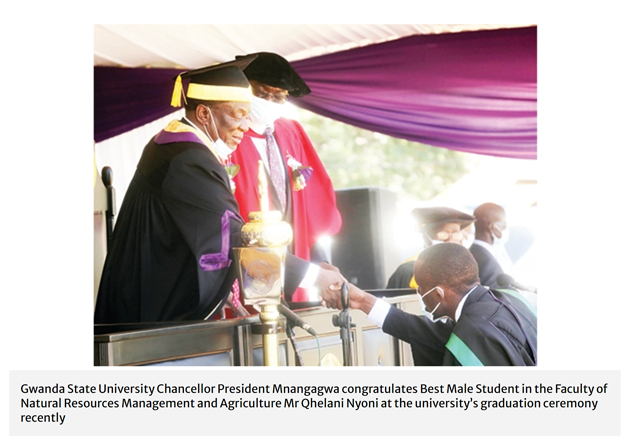Zimbabwe (National University of Science and Technology) Time Up For Colonial Education

Nqobile Tshili, Chronicle Reporter
MR QHELANI Nyoni from Gwanda is a recipient of the US$1 000 Emmerson Dambudzo Mnangagwa Chancellor’s Award after he emerged as the Best Male graduating student at Gwanda State University in Matabeleland South. The Emmerson Dambudzo Mnangagwa Chancellor’s Award is awarded to the best male and female students graduating at each State university. Mr Nyoni graduated with an undergraduate degree in animal science and has big plans. He is not worried about getting employment as he believes the education he received at the tertiary institution will set him off for greater things.
“It is capital and at the university, I got theory and practical skills. Of course, I can learn something from the industry but on my own, I am ready to start something.” Mr Nyoni, like thousands of other recent graduates, is a beneficiary of the transformative Higher and Tertiary Education, Innovation, Science and Technology Development Ministry’s Heritage Based Education 5.0 introduced in 2018. Heritage Based Education 5.0 aims to dismantle the colonial system of education which experts argue was not responsive to societal problems, not just in Zimbabwe but also the entire African continent, among other developing nations in the world. The continent is struggling with mass production of graduates who find it difficult to get jobs. The colonial system was specifically designed to produce a labour force for the settlers. Graduates were full of theory and their only goal was to get employed by someone, as opposed to creating employment or setting up their own companies. Higher and Tertiary Education, Innovation, Science and Technology Development Permanent Secretary Professor Fanuel Tagwira said Heritage Based Education 5.0 is dismantling the colonial system. He was speaking at the National University of Science and Technology (Nust) at an International Workshop on Leveraging Innovations for Infrastructure Development and Sustainable Development, attended by participants from South Africa, Mauritius, and Nigeria among other nations via virtual platforms.
“I’m sure most of you know that an African education has come a long way. We adopted our education from our colonial masters which was a very elitist kind of education designed to produce native white-collar workers, who would support a particular colonial system in that particular country,” said Prof Tagwira.
“We started with imported workers coming from Europe and at some stage, they said let us train the locals. But the training was never meant to be compatible with the needs of our continent but to produce white-collar workers. And hence, the term which has gone around in terms of ivory towers, an education which focused on the heart and the mind largely ignoring the hand.” He said post-independence, most countries continued delivering the same education without questioning its relevance to society. Prof Tagwira said universities in Africa continued to churn out graduates who mirrored the thinking of former colonial masters who deliberately made sure that Africans were not skilled but highly theoretical. “This is why over time our governments had to ask, ‘Do we need these graduates? Yes, it’s nice to say we have graduated 2 000 people and after they have graduated they come back and say can you find me a job. And jobs are shrinking on the continent.
The education we are providing is not able to create jobs. It is actually creating people who come and seek jobs. That is the major challenge that we have been facing as a continent and as a country here in Zimbabwe,” said Prof Tagwira. An innovation hub that was commissioned by President Mnangagwa at Nust recently He said President Mnangagwa’s rise to power is transforming the narrative for the higher and tertiary education sector. Prof Tagwira said while some graduates are expected to be absorbed by industry, Government’s thrust is to produce students who will create industries. “We know that Zimbabwe has really gone into a revolution and that revolution started in 2018 when the New Dispensation came into power. His Excellency, the President said he wants industrial parks and innovation hubs which will lead to innovations and industrialisation championed by Heritage Based Education 5.0,” said Prof Tagwira.
He said Zimbabwe wants to lead the pack on research in Africa observing that despite some diseases only being endemic in Africa, the medicines to treat them are produced in other continents yet raw materials obtained from the continent. “We want to focus on the heart, the mind and hands to ensure that our graduates are able to support industrialisation and infrastructure development for our country. That was the birth of Heritage Based Education 5.0 which is saying it is not enough for our universities to focus on teaching, research and community services because this is what we have been doing and there has been no change,” he said
“The idea was to ensure we also bring in innovation and industrialisation which are key pillars that will help produce a graduate who has skills and who is able to support national development.” Prof Tagwira said the adoption of the Heritage Based Education 5.0 saw universities rising to the occasion when the Covid-19 pandemic broke out in 2020. He said the higher and tertiary sector saved the country millions on foreign currency through the production of sanitisers, personal protective equipment and even medical oxygen. “Even when you look at the African Union level our Heads of State have said they want an integrated, prosperous Africa driven by its citizens and representing a dynamic force in the international area. This means to produce an Africa that is driven by its citizens, it means we have to be masters of technology, we have to build innovation-led and knowledge-led economies. And we can only produce innovation-led based economies when we embrace innovation and industrialisation,” said Prof Tagwira.
Nust Vice Chancellor Prof Mqhele Dlodlo said Heritage Based Education 5.0 was important in driving Zimbabwe’s industrialisation through knowledge. “Possession of natural resources alone has failed to transform the economies of African countries as the resources are after extraction exported raw due to lack of innovations and technologies to beneficiate them,” said Prof Dlodlo.
